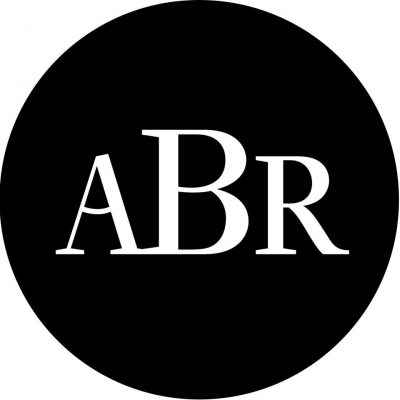Letters to the Editor
Starched collars
Dear Editor,
Stuart Macintyre’s review of my book, Curtin’s Empire (April 2011), shows that on many of the substantive issues relating to the wartime leader’s world view we are on common ground. Macintyre notes that Curtin’s 1941 ‘Look to America’ statement was not in fact the first time that an Australian leader had appeale ...
Behind the screen
Dear Editor,
Questions of objectivity and subjectivity are a burden borne equally by anthologist and reviewer, so it was with some surprise that I read Chris Flynn’s oddly unsympathetic and bathetic review of two recent collections in ABR (February 2011). Flynn seems unde ...
Busted
Dear Editor,
In his essay ‘Seeing Truganini’ (May 2010), David Hansen focused on the politics around the Benjamin Law busts of Truganini and Woureddy. As an aside, he mentioned that ‘Law’s only other known bust, of Robinson himself, has been lost’. It is ironical that, as Hansen’s essay was going to print, Gareth Knapman (Museum Victoria) and Olga Tsara (State Library of Victoria) located one of the George Augustus Robinson busts in the State Library of Victoria.
... (read more)Tragedy and loss
Dear Editor,
In his otherwise eloquent defence (‘Seeing Truganini’, May 2010) of Benjamin Law’s busts of Truganini and Woureddy as ‘irreducible historical objects’, secular works of art and therefore items that should be available for free discussion and exchange, and also in his sketching of the various shades of guilt accompanying this very complex issue, David Hansen, a professional curator, is, I feel, himself ‘guilty’ of looking around these works rather than at them – in fact, not ‘seeing’ them. Dr Hansen says: ‘It is not the sculpture that conveys the extinction myth, but the way the image is and has been used in another past, a later past.’ Focusing on Truganini, he details how, when her bust was made, there were still ‘two hundred full-blood Palawa living’, Darwin’s ‘Origin’ was twenty years off, Truganini was ‘smart and vivacious, young and attractive’, and she and her treaty group were ‘A-list colonial celebrities’.
... (read more)Southerly and élitism
Dear Editor,
I was pleased to see ABR’s review of the seventieth birthday issue of Southerly (March 2010), but I need to respond to a number of matters raised in Jeffrey Poacher’s review. First, though, I need to own the error pointed out by Mr Poacher. Mr Poacher correctly observes that I twice get wrong the name of the founding editor. The man’s name was R.G. Howarth. I wrote R.J. Howarth. The middle initial was wrong.
... (read more)Patterned play
Dear Editor,
Reviewing my On the Origin of Stories: Evolution, Cognition, and Fiction in ABR, Lisa Gorton writes, ‘Boyd shows a troubling lack of interest in the female of the human species’ (October 2009).
... (read more)Endemic yowling
Dear Editor,
A footnote for Peter Craven. In 1935, the professor of English at the University of Melbourne, G.H. Cowling, declared that an Australian literature was virtually impossible. This enraged Australian writers everywhere, and provoked P.R. Stephensen’s classic The Foundations of Culture in Australia (1936). It is also the only reason anyone remembers Cowling (‘Yowling’, according to Miles Franklin), and a reminder of the then image of English departments and their hangers-on as ‘the Garrison’. J.I.M. Stewart was another. Maybe the problem is endemic.
... (read more)Dear Editor,
In responding to Peter Craven’s broad-brush review of the Macquarie PEN Anthology of Australian Literature in last month’s ABR, which I suppose you ran for the sake of controversy, let me touch on the wider debate about what’s in the book, and why.
In compiling such an anthology, where you obviously can’t have everything, a principle of metonymy comes into play, in which the one is asked to stand for the many. In the Macquarie PEN, this is a principle of inclusion, not exclusion. Where space permits no more, authors are indicated by association or citation, making the whole greater, we hope, than the sum of the parts, more open and many-layered, as anyone will discover who reads the essays and author introductions in the book. Thus Gerald Murnane’s fiction is implied by a superb piece of non-fiction, ‘Why I Write What I Write’, showing him at his best. The only other answer to why the editors did not choose this particular work is that they chose that one, after careful consideration not only of the work itself but of its interaction with other works in the collection. Nothing’s perfect, of course. If readers have suggestions or corrections, we’d be grateful to hear them. See the feedback link on the home page of the anthology website: www.macquariepenanthology.com.au.
... (read more)Delights and jolts
Dear Editor,
ABR is always engaging, even when one disagrees with the thrust or standpoint of particular reviews, but surely the May issue is the most brilliant ever. An edition which has a poet (Peter Rose) reviewing David Malouf’s new novel, Brian Matthews on Henry Lawson, Elizabeth Webby on Xavier Herbert, and Robert Phiddian on Penny Gay’s monograph about Shakespearean comedies, has to be special, thoroughly deserving of the endorsements of literary luminaries with which ABR has promoted itself over the years. In fact, a writer who, as Dr Phiddian did, can use the phrase ‘industrial-strength literary-criticism’ in his first paragraph and one of my favourite words, ‘rebarbative’, in his second, has my unremitting admiration. And I haven’t yet mentioned the appearance of John Burnheim and Ian Britain on the Letters page.
... (read more)Dear Editor,
This is a note to congratulate you on the quality of the latest Calibre Prize essays, by Jane Goodall and Kevin Brophy, in the April edition of ABR. The two pieces maintain the incredibly high standards of the Prize, of which I was honoured to be an inaugural judge.
... (read more)

